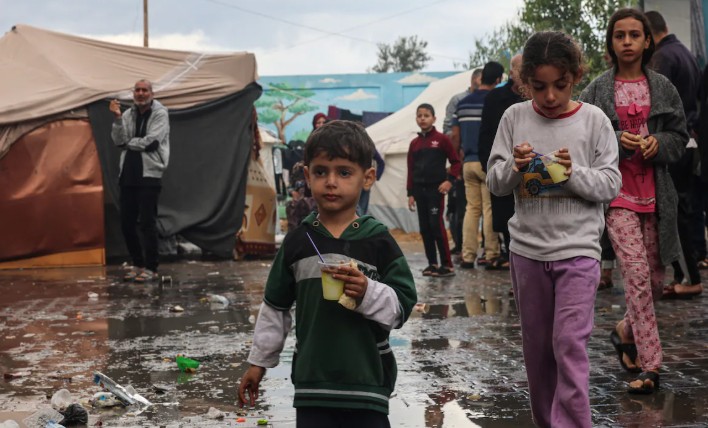Gaza Children: Over 100 Critically Ill Hope for Evacuation to UK as Aid Blockade Deepens
More than 100 Gaza children suffering from severe injuries and life-threatening illnesses are holding onto hope. Hope that the UK government’s newly announced evacuation scheme will finally bring them to safety, and to the care they desperately need.
The move comes as the UK prepares to receive a limited number of young patients from Gaza, following months of delay and mounting international pressure.
The scheme, first announced on Sunday, is expected to begin within weeks. But for many campaigners and charities on the ground, time is running out.
“We have previously had children on the list, but because approval takes so long, some of those children have ended up dying,” said Omar Din, co-founder of Project Pure Hope (PPH), and an NHS healthcare executive. “The government needs to move at pace.”
The situation in Gaza is beyond critical. Since 7 October, over 50,000 Palestinians have reportedly lost their lives, with starvation and disease becoming as deadly as the bombs. Israel’s continuing blockade on aid has crippled access to food, water, and, crucially, medical supplies.
According to the World Health Organization, up to 12,500 patients in Gaza are in urgent need of medical evacuation. Other nations have already stepped up.
The UAE, Jordan, Egypt, Qatar, and the US have collectively helped evacuate thousands. Campaigners say the UK is now finally preparing to follow suit.
But for some, it’s already too late. “This is absolutely disheartening,” a spokesperson for Children Not Numbers (CNN) said. “We had to wait around 10 months for it to happen.”
Since CNN first appealed to Downing Street in November, 71 children under their care have died. The charity currently has 60 children in immediate need of evacuation, all with complete medical files ready, awaiting final clearance from Israel’s COGAT authorities.
“We are ready to go as long as we have the green light from the government,” the spokesperson added.
Pressure on the UK to act has escalated over the past few months. Legal action was launched by charities against the government for refusing evacuation support, despite previous humanitarian precedents. Meanwhile, more than 100 MPs demanded urgent intervention.
Now, with a cross-government taskforce assembled, the UK hopes to provide both NHS and private sector treatment through the new scheme. The model has already been tested by PPH, which has privately evacuated three children to Britain this year.
“It’s not too late in the sense that there are people who can still be helped, there are many children,” said Din. “But we should have done this much sooner.”
PPH has told ministers it has a list of 30 to 50 children who are ready for travel, with medical documentation complete. CNN’s list stands at 60. In most cases, children would be accompanied by a parent or guardian, and in some instances, siblings.
The scale of suffering is harrowing. One child the charity tried to bring over had suffered fourth-degree burns over nearly half of his body. But red tape slowed the process, too much.
He was eventually evacuated to Italy instead. A one-year-old with a congenital illness was also flown to Europe after facing delays in the UK pipeline.
“We’ve now developed a blueprint, we’ve got all the resources and learning. The whole pathway is there now for you to take and use the full force of government to scale up urgently,” Din urged.
There is also strong support from within the UK’s medical community. Many healthcare professionals and private providers have stepped forward, willing to donate time, expertise, and resources.
“We have a thriving private healthcare system in addition to our NHS system, and combined with the government behind them, I think services can be expanded to support a greater number of children,” said Din.
In a brief statement, a Foreign Office spokesperson confirmed: “We are taking forward plans to evacuate more children from Gaza who require urgent medical care, including bringing them to the UK for specialist treatment where that is the best option for their care.”
As the scheme inches closer to implementation, charities and frontline workers continue to echo the same message: speed is critical. The longer the delay, the fewer lives saved.
And for the Gaza children trapped in one of the world’s most dangerous places, time is more than a number. It’s survival.






